vegetarian foods
Vegetarian Foods in Japan: An Amazing History and a Guide!

Savannah Walker
Posted on March 13, 2024
Share:
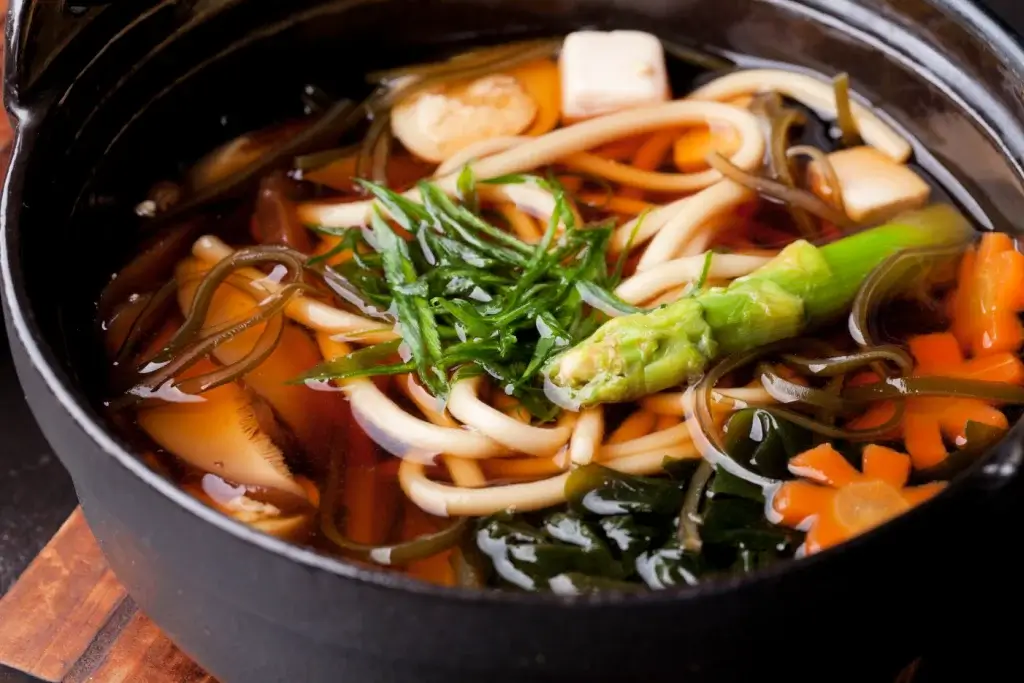
Welcome to a culinary adventure through Japan’s vibrant world of vegetarian foods! From the bustling streets of Tokyo to the serene temples of Kyoto, vegetarianism is not just a trend but a rich tradition ingrained in Japanese culture. Join us as we discover the rich history behind Japan’s vegetarian traditions, tracing their evolution from ancient times to the modern era!
If you are a seasoned gourmand or an adventurous eater, immerse your taste buds in the unique flavors of Japanese vegetarian foods! Each bite celebrates culinary creativity and cultural heritage, from savory soups to crispy tempura. So prepare to be swept away by the delicious wonders of vegetarian foods in Japan. Get ready for a mouthwatering adventure that will leave you craving more!
What does “vegetarian” mean?
Let’s start by understanding the term “vegetarian.” Being vegetarian involves abstaining from meat, poultry, and fish while incorporating eggs and dairy products into one’s diet. It’s a dietary choice that emphasizes plant-based foods while allowing some animal products like eggs and dairy.
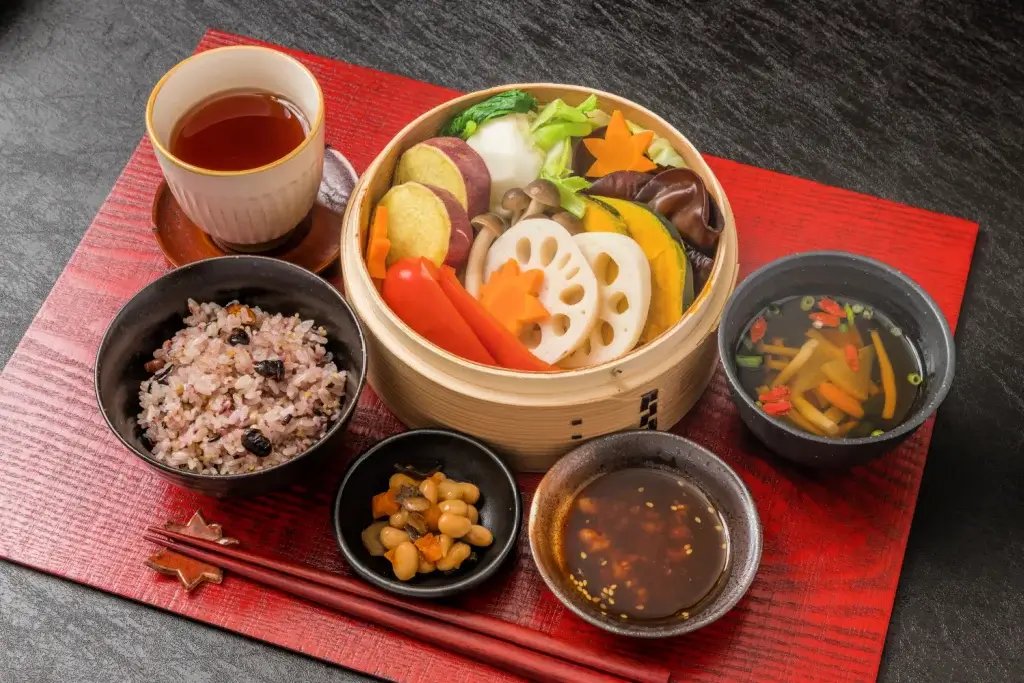
It is essential to know the difference between vegetarians and vegans. While both groups focus on plant-based eating, vegans take it a step further by excluding all animal-derived products from their diet. This generally includes meat, poultry, fish, eggs, dairy, and honey.
So, when discussing vegetarian foods in Japan, we’re referring to dishes that align with this dietary preference. Moreover, Japanese cuisine is versatile and creative. These dishes also offer plant-based options. They especially cater to diverse tastes and dietary needs. Hearty tofu dishes are available. Refreshing vegetable sushi rolls are also an option. Overall, Japan’s vegetarian fare is delicious and nutritious. All in all, it’s a delightful culinary adventure for vegetarians and food enthusiasts.
How long have vegetarian foods been available in Japan?
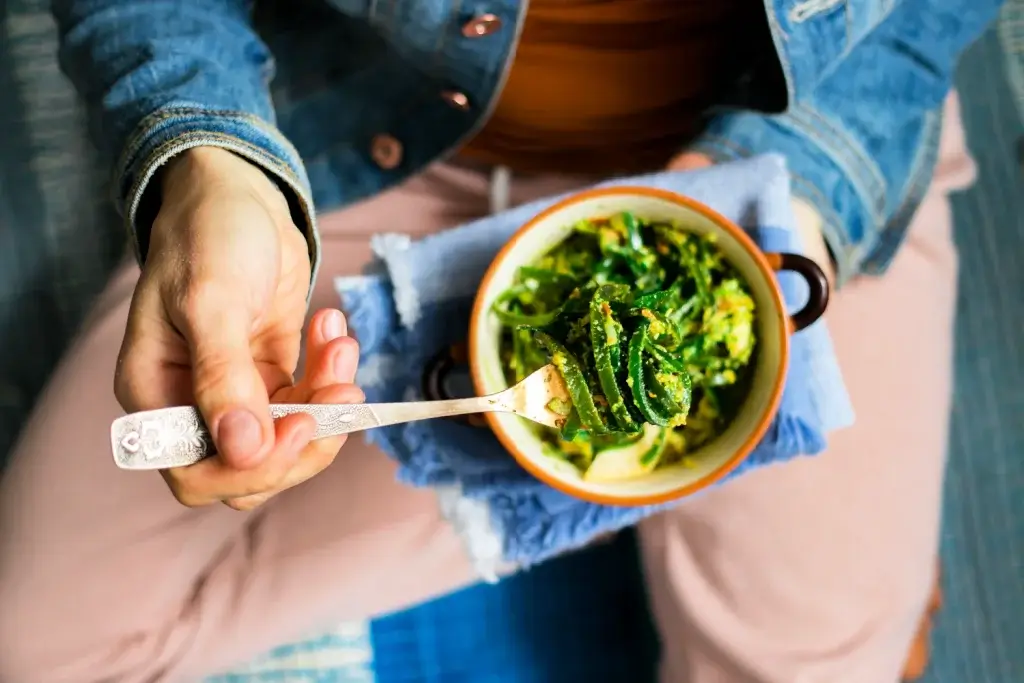
Contrary to popular belief, vegetarianism has a long history in Japan, dating back to ancient times. Influenced by Buddhist principles of compassion and non-violence, vegetarian cuisine, known as Shojin ryori, has been practiced by monks for centuries! All in all, this Zen Buddhist tradition emphasizes simplicity, balance, and harmony in preparing and consuming food.
Are you looking for some fantastic snacks from across Japan? Check out Sakuraco! Sakuraco delivers traditional Japanese snacks, teas, and sweets from local Japanese makers directly to your door.
What are some vegetarian foods I can enjoy?
Ramen
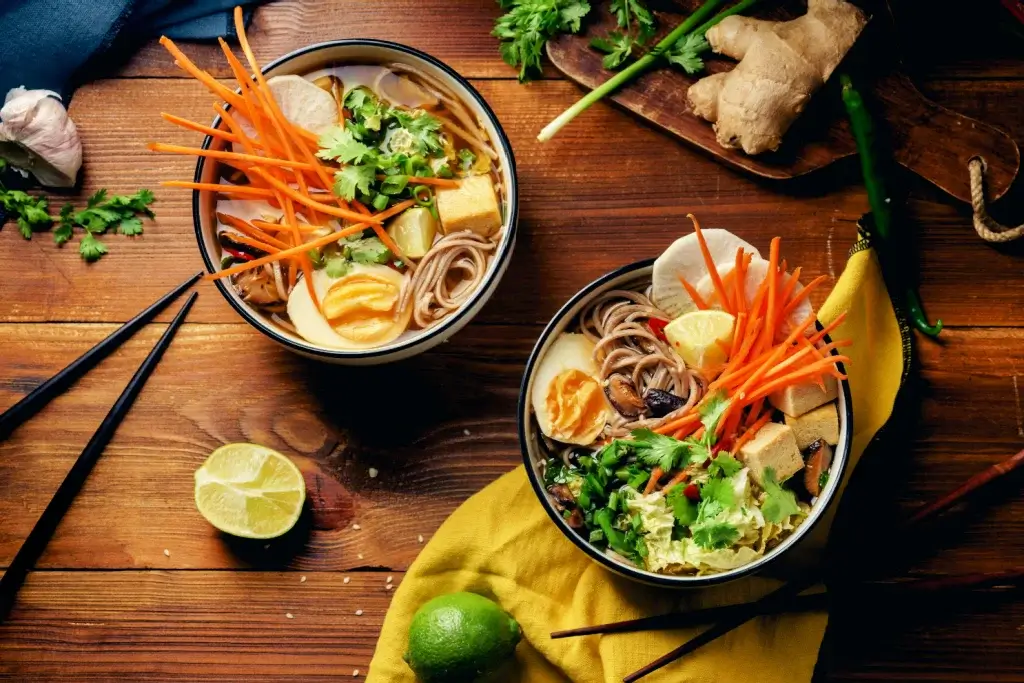
Think you can’t enjoy a steaming bowl of ramen without meat? Think again! In Japan, vegetarian ramen has become increasingly popular, offering a flavorful alternative for herbivores. Traditionally, ramen broth is simmered with pork or chicken bones for hours to achieve its rich flavor. However, vegetarian versions use miso, soy sauce, and kombu to create an equally satisfying savory broth. Vegetarian ramen is also a hearty and wholesome meal to warm your soul, topped with fresh vegetables, tofu, and nori seaweed.
Sushi
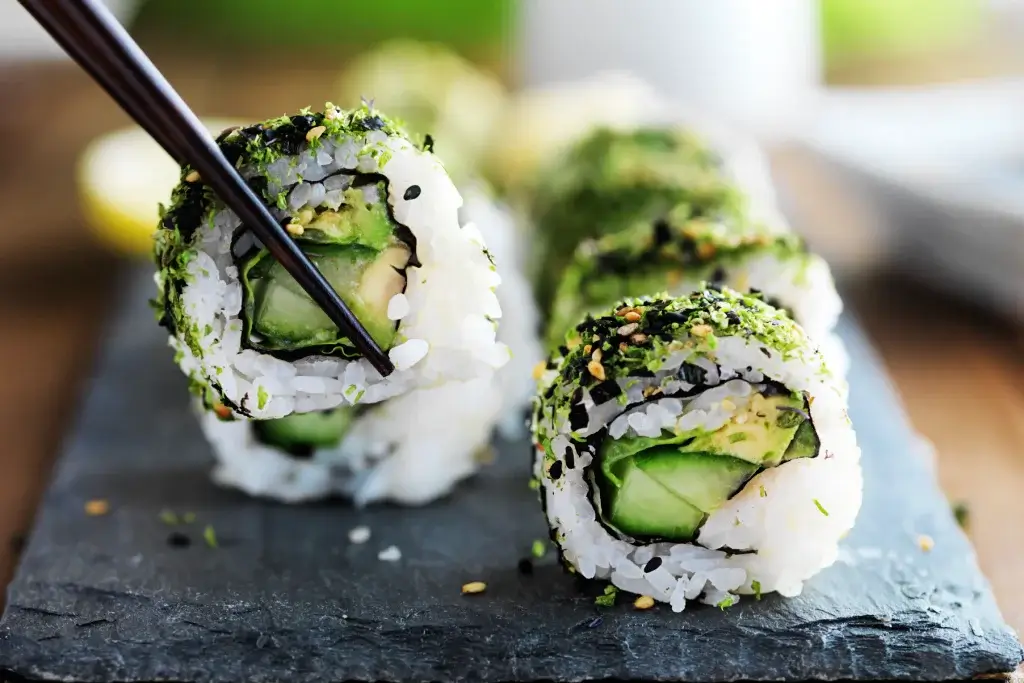
While sushi is typically associated with raw fish, many vegetarian options exist in Japan’s sushi culture. From cucumber and avocado rolls to pickled radish and shiitake mushroom nigiri, many plant-based delights can tantalize your taste buds. One popular variation is the Inari sushi, where seasoned rice is nestled inside a sweet tofu pouch, offering a delightful blend of flavors and textures. Whether a sushi fan or a curious novice, vegetarian sushi promises a yummy experience!
Shojin ryori
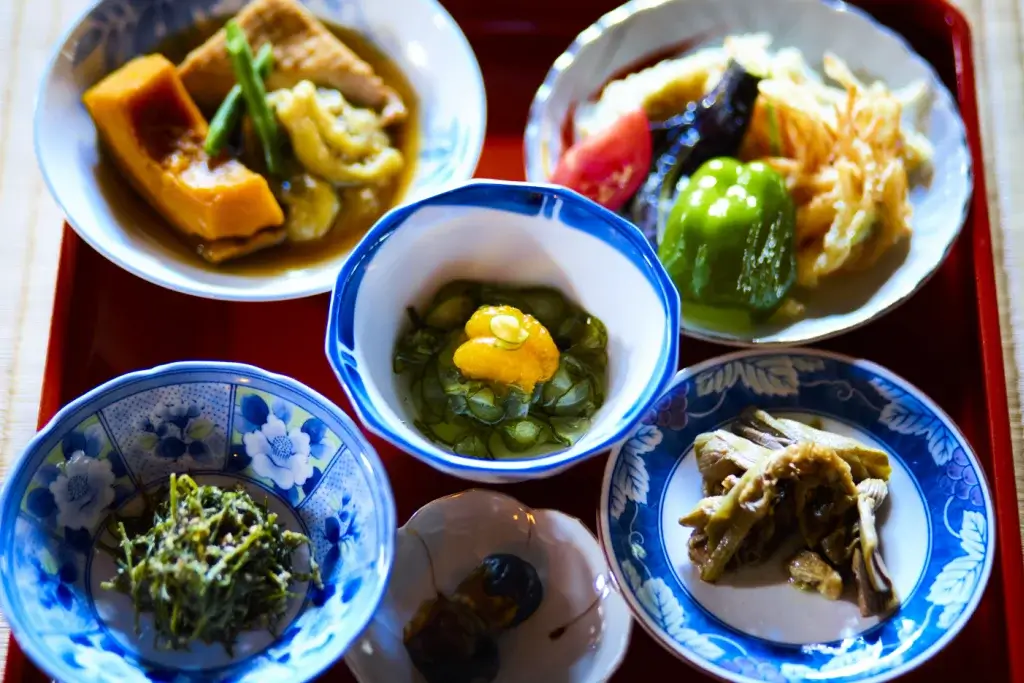
Let’s go on a journey back in time with shojin ryori, the traditional vegetarian cuisine of Japanese Buddhist monks. Rooted in mindfulness and simplicity, shojin ryori also focuses on seasonal ingredients and minimal seasoning to enhance natural flavors! Not to mention, each meal celebrates nature’s bounty, from delicate tempura to savory simmered dishes, prepared with reverence and care. Without a doubt, you can experience the tranquility of Zen dining as you savor the nourishing flavors of Shojin ryori, a true reflection of Japan’s yummy culinary heritage.
Zaru soba
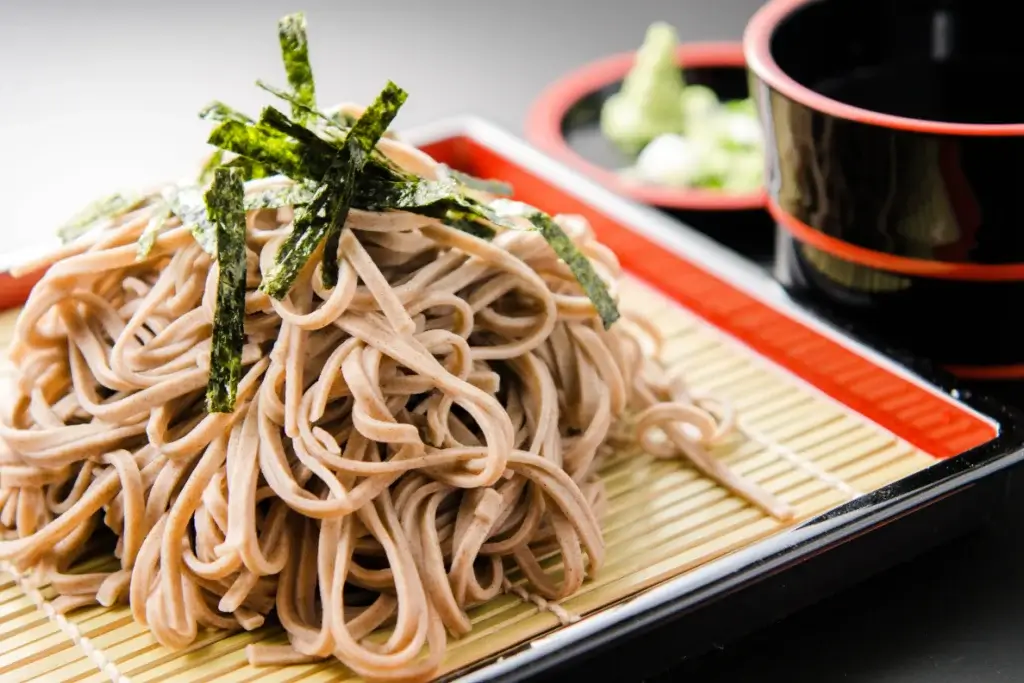
Zaru soba is a refreshing dish for hot summer days. It consists of chilled buckwheat noodles. The dish originated from the Edo period. It has stood the test of time. It’s a beloved staple in Japanese cuisine. Not to mention, zaru soba is served on a bamboo tray. It comes with sliced green onions, grated daikon radish, and wasabi. The dish offers a delightful mix of flavors and textures. It’s perfect for any occasion. Light, healthy, and bursting with umami goodness, it’s no wonder zaru soba remains a favorite among vegetarians and omnivores.
Why should I try vegetarian foods in Japan?
In addition to their delicious flavors and cultural significance, vegetarian foods in Japan offer myriad health benefits. Rich in plant-based proteins, vitamins, and minerals, these dishes provide essential nutrients while reducing the risk of heart disease and other chronic illnesses. All in all, by embracing the diversity of vegetarian cuisine, you’ll nourish your body and support sustainable food practices that benefit the planet!
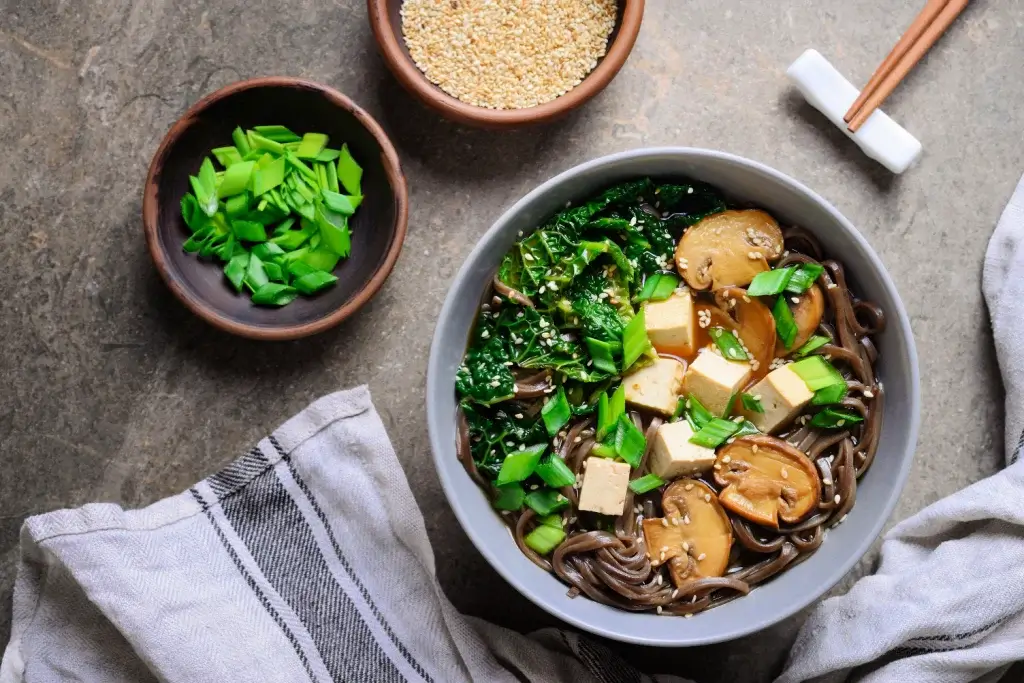
So why wait? Take a bite out of tradition and savor the flavors of Japan’s vibrant vegetarian cuisine. Have you ever had these dishes? Remember to leave a comment below and share your favorite vegetarian dishes or experiences in Japan!
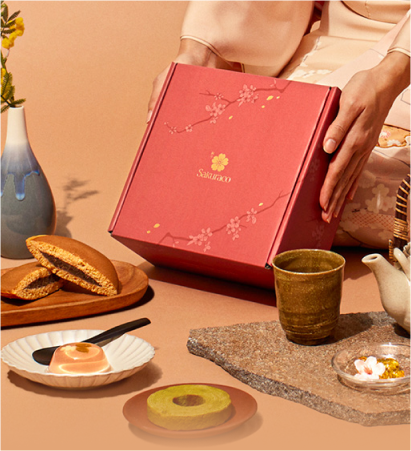
Discover authentic flavors with Sakuraco
Get Sakuraco 

Discover authentic flavors with Sakuraco
Get Sakuraco 
Related Articles

Japanese Chocolate Brands to Enjoy This February!
Japan is famous for its artistry and creativity, which extends beautifully into the world of sweets, especially chocolate. Their global popularity continues to grow, captivating sweet lovers around the world.
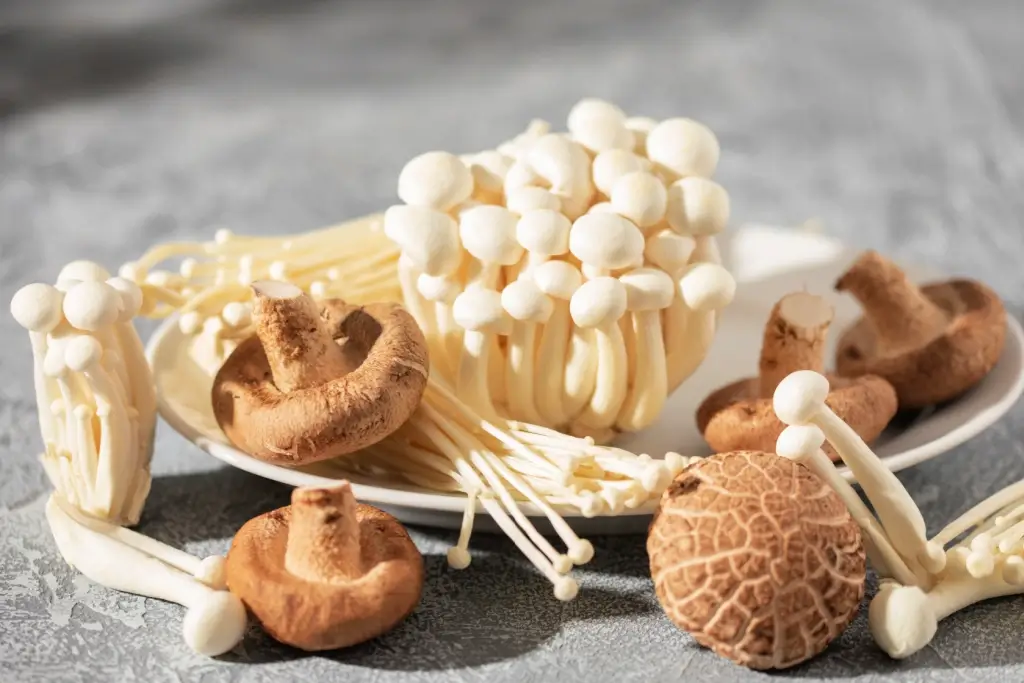
Enoki is Just One of Many Japanese Mushrooms to Try!
Japan is blessed with various edible mushrooms. Let’s explore some popular ones in cooking, starting with enoki!
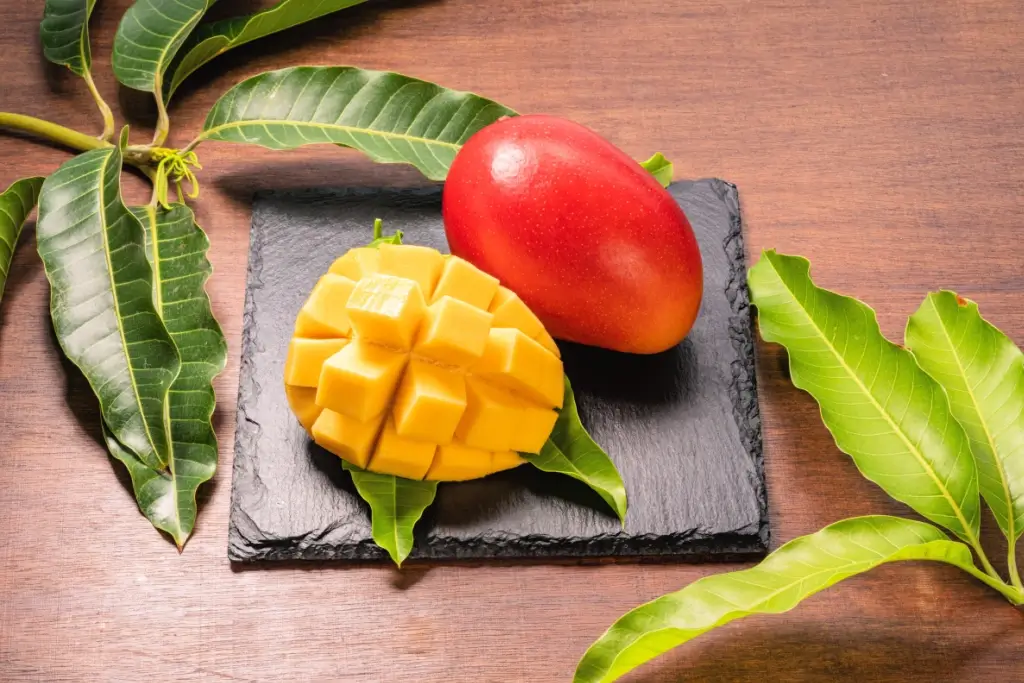
Mango and More: Delicacies from the Miyazaki Prefecture!
Each Miyazaki is worth eating in person, especially since you learn about the region’s rich culinary heritage. Let’s explore Miyazaki mango and other local dishes together.
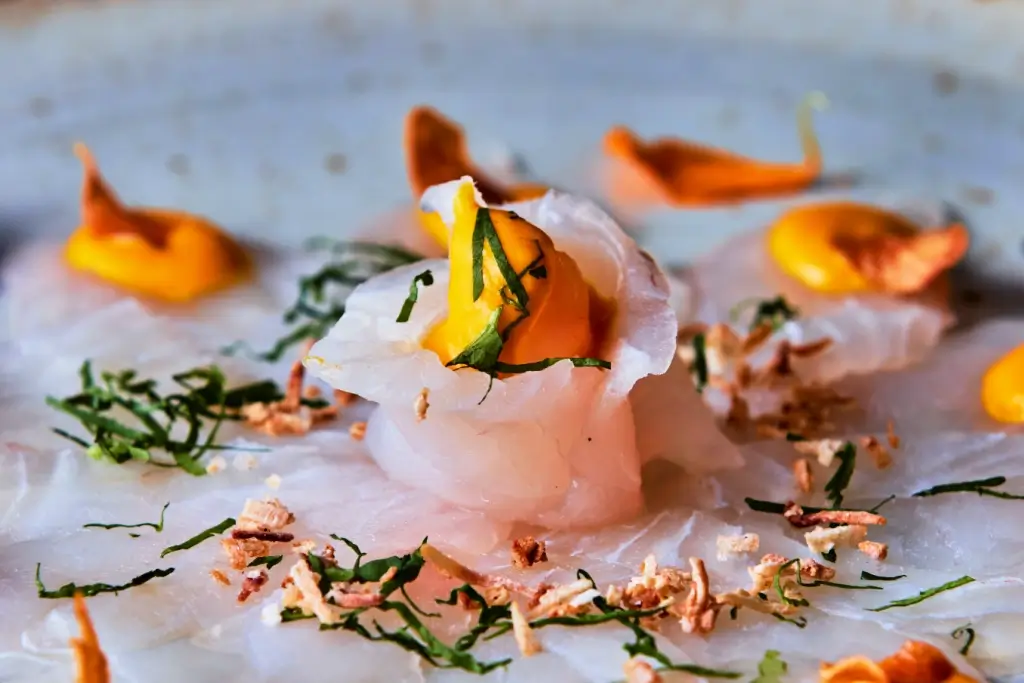
Tiradito and More Japanese Fusion Cuisine Worldwide!
Japanese cooking methods and ingredients have created new dishes in many countries for several decades. Let’s learn more about Japanese cuisine worldwide, starting with tiradito!



